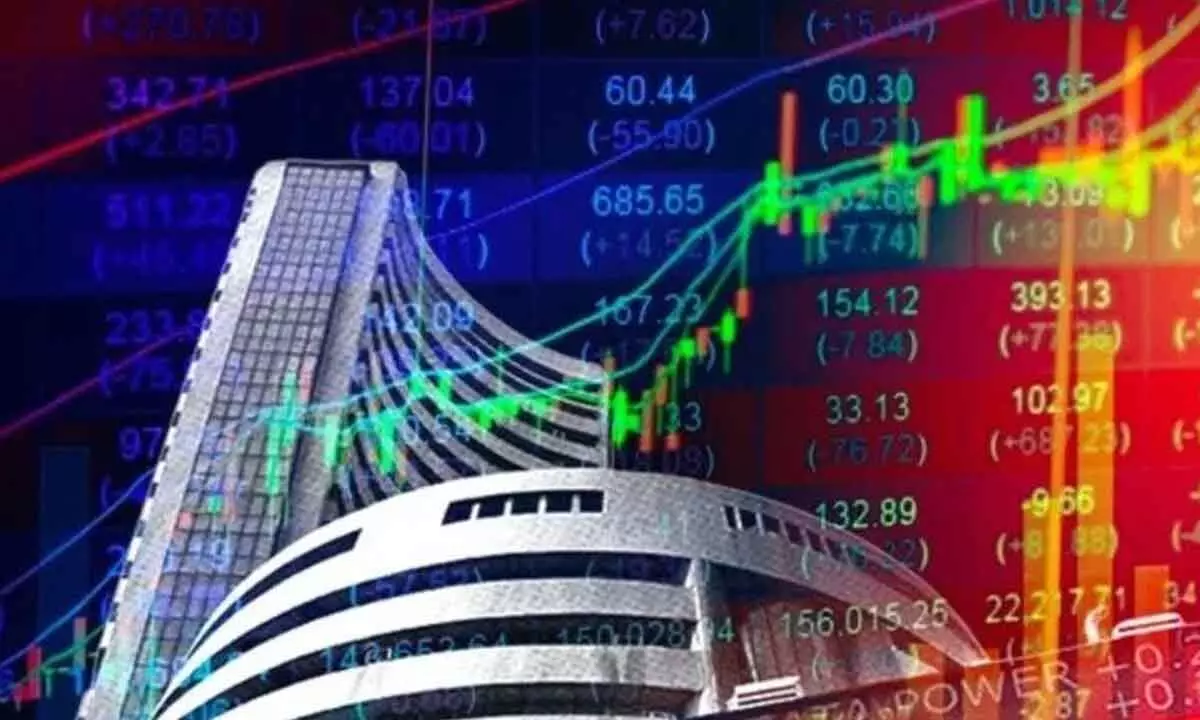Be a smart, not impulsive, investor by balancing greed and fear before making informed decisions
The Indian stock market provides an insight on the impact of greed and fear, especially during elections
image for illustrative purpose

Focus on fundamentally strong companies with robust business models and good growth prospects. Despite market fluctuations, these stocks tend to perform well over the long term
“Lobh Aur Bhaya Do Snehak, Bazaar Ke, Rahate Hai Mishrti;
Sambhal KeInakaa Upyog Karo, Raho Na Ek Par Hi Ashrit.”
Translation: Greed and fear are two lubricants of the market that will always remain interwoven.
Don’t rely heavily on either, a balance use of both ensures success, it’s proven.’
In the dynamic world of the financial markets, two powerful emotions primarily drive investors’ behaviours-greed and fear. These two emotions cause the ‘bull’ and ‘bear’ phases of the market. ‘Greed’ gives the necessary momentum and fuels to market uptrend, while ‘fear’ leads to market downtrend. These psychological forces work as lubricants to a complex machinery called ‘capital market’.
The ability to harness these emotions intelligently can impact investment success in a positive way. The Indian stock market, with its volatility and susceptibility to various macro-economic and political events, provides an insight on the impact of greed and fear, especially around election time.
The role of greed
Greed, in the context of the stock market, refers to the desire for wealth and the anticipation of future gains. It drives investors to buy assets in the hope that their value will rise. When optimism pervades the market, stock prices often inflate as more investors buy into the market, creating a self-fulfilling prophecy of rising prices. When investors buy out of greed without understanding the company or its underlying value, they are falling for the ‘greater fool theory’ that argues that “prices go up because people are able to sell overpriced securities to a ‘greater fool’, irrespective of whether they are overvalued or not. That is, of course, until there are no greater fools left.”
Case study-Exit poll results day: The exit poll results of this year’s General Elections released on June 1predicted a clear victory to the incumbent government. This news was perceived positively by the market due to the government's pro-business policies and economic reforms.
The following events highlight the influence of greed-Market rally: On the day exit polls were announced, the benchmark indices, Sensex and Nifty, surged significantly. Investors were optimistic about policy continuity and economic stability.
Sectoral gains: Sectors such as banking, infrastructure and real estate saw substantial gains. Public sector companies experienced a sharp price increase as investors anticipated favourable business conditions under the continued administration.
Increased trading volumes: Trading volumes soared as both institutional and retail investors rushed to buy stocks, driven by the greed to benefit from the expected market-friendly outcomes of the election.
This rally exemplified how greed, fuelled by positive exit poll results, can drive up stock prices and create a bullish market environment irrationally.
The role of fear
Fear, on the other hand, is the anticipation of losses and drives investors to sell assets to avoid further declines. Fear can lead to market corrections and crashes, often triggered by economic uncertainties, geopolitical events, or negative news.
Case study: Election results day: On June 4, the final election results showed a narrower-than-expected victory for the incumbent government. This unexpected outcome introduced uncertainty and sparked fear among investors:
Market volatility: Sensex and Nifty experienced significant volatility, with both indices plummeting on the trading day. The fear of political instability and potential challenges in policy implementation led to widespread selling.
Sector-specific declines: Sectors that had rallied on exit poll day, such as banking and infrastructure, faced sharp declines. Stocks of various PSUs dropped as investors reassessed their earlier optimism in light of the political uncertainty.
Increased VIX: The India VIX, a measure of market volatility and investor sentiment, spiked dramatically, giving an indication of heightened fear and uncertainty in the market.This scenario illustrated how fear, triggered by unexpected poll setbacks, can lead to rapid selloffs and increased market volatility.
Balancing greed and fear-Smart strategies:
Successful investors learn to balance greed and fear, making informed decisions rather than reacting impulsively to market emotions.
Here are some strategies that are effective remedial measures-Diversification: Spread investments across various sectors and asset classes to mitigate risk. Holding a diversified portfolio can help cushion the impact of market volatility.
Value investing: Focus on fundamentally strong companies with robust business models and good growth prospects. Despite market fluctuations, these stocks tend to perform well over the long term.
Market sentiment analysis: Monitor market sentiment indicators, such as the Volatility Index (VIX), to gauge the level of fear or greed in the market. High VIX levels often indicate buying opportunities, while low levels suggest caution. Understanding these indicators can help investors make more informed decisions.
Conclusion
Greed and fear are intrinsic to the stock market, profoundly influencing investor behaviours and market dynamics. The Indian stock market's reaction to the 2024 election cycle underscores the importance of managing such emotions.
By employing strategies like diversification, value investing, risk management, sentiment analysis and proper asset allocation, investors can navigate the market's emotional tides effectively, achieving more stable and rewarding investment outcomes.
We may go on rationalizing our greed and fear, but we must remember the eternally relevant quote by Gary Shilling, an American economist and financial analyst, ‘The market can remain irrational longer than you can remain solvent’ while executing deals out of ‘greed’ and ‘fear’ instead of fundamentals.
(The writer is Executive Vice-president, SBI Funds Management Ltd; Translation and text by HardeepKaur, Deputy Vice-president, Knowledge Management, SBI Funds Management Limited)

